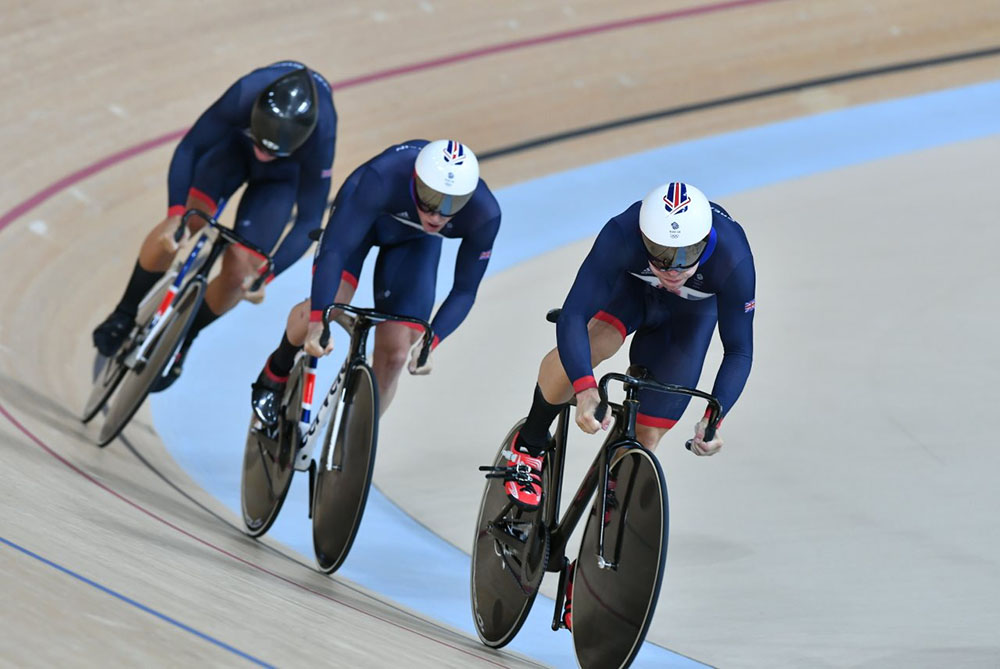Callum Skinner publishes medical records to prove his 'asthma is real'
British track sprinter Callum Skinner obtains and publishes all of his National Health Service records relating to his asthma in the wake of his hacked TUEs being published


Callum Skinner
British track sprinter Callum Skinner has made the move of publishing his National Health Service medical records in order to prove that he has been a long-term sufferer of asthma and that he has 'nothing to hide'.
Skinner put copies of his medical records online on Monday evening in the wake of having his therapeutic use exemption (TUE) certificates published by hacking group Fancy Bears last week. Skinner wrote an accompanying column for the Scotsman to explain his medical records.
Rio 2016 Olympic gold and silver medallist Skinner's TUEs show that he was prescribed prednisolone, a glucocorticoid used to treat inflammation, on November 6 2014; and asthma drug salbutamol for two days, January 25-26 2016.
"When I went on Twitter and saw a headline with my name and stories with my picture I knew that people would be sceptical and think my TUEs could be questionable," the 24-year-old wrote in the Scotsman.
"And to be honest, I sympathise. I imagine myself a few years ago, as a cycling fan. I would have read the headline, not bothered opening the article, and moved on, putting two and two together and concluding that it all sounded a bit dodgy.
"After the leak I resolved to release my NHS medical records, so I’ve spent the past week phoning doctors I’ve seen and the hospitals to which I have been admitted on four occasions having suffered asthma attacks. I was keen to make my records public for two reasons: to prove that my condition is real, but also to show that asthma need not stop somebody competing at the highest level."
>>> Callum Skinner’s anti-doping data published by Russian hackers
The latest race content, interviews, features, reviews and expert buying guides, direct to your inbox!
Skinner writes that he was inspired by fellow Scot Chris Hoy to take up cycling at the age of 12, despite his asthma, saying: "I was attracted to the sprint events because these seemed easier for an asthmatic. You go and do your effort then come off the track and, if your chest is tight, use your inhaler before you go again."
In order to manage his asthma symptoms and reply less on medication, Skinner says that he has sought the advice of respiratory experts and changed his diet to help alleviate his condition.
However, Skinner says that a childhood bout of pneumonia related to his asthma has resulted in him being prone to chest infections. He states that he pulled out of competition in December 2014 due to illness rather than apply for another TUE, missing the European Championships and a Track World Cup.

"Sometimes TUEs are necessary – I had my second in January after falling ill, with a two-day treatment of salbutamol clearing up the problem and causing minimum disruption to my training," said Skinner.
"I’m not claiming the TUE system is perfect. One athlete using the system for performance enhancement rather than for genuine health reasons is one too many. But personally, I have no issue with all my TUEs, and drug test results, being made public.
"If you have nothing to hide, you have nothing to fear."
TUE certificates are issued when an athlete has been prescribed a drug on the World Anti-Doping Agency's prohibited list for a medical reason. The TUEs are held by WADA as part of an athlete's anti-doping file.
Russian hacking group Fancy Bears illegally obtained TUEs from confidential records stored on WADA's computer system, and have been publishing them in batches.
A TUE is not evidence of wrong-doing.

Nigel Wynn worked as associate editor on CyclingWeekly.com, he worked almost single-handedly on the Cycling Weekly website in its early days. His passion for cycling, his writing and his creativity, as well as his hard work and dedication, were the original driving force behind the website’s success. Without him, CyclingWeekly.com would certainly not exist on the size and scale that it enjoys today. Nigel sadly passed away, following a brave battle with a cancer-related illness, in 2018. He was a highly valued colleague, and more importantly, an exceptional person to work with - his presence is sorely missed.